Learn How the Commercial
Trucking Insurance Experts at Independence Agency
Can Save your Company Thousands of Dollars!
Get A Quote
 The
Importance of
The
Importance of
Commercial Truck Insurance in Union, SC
- Let's face it - truckers in America have always been the backbone of our great country. They still are in modern times. On any given day, thousands of trucks traverse our highways and local roads, delivering goods and products on time so that businesses and consumers have what they need to live life. And while commercial trucking can be an incredibly lucrative way to make a living and put food on the table, it can also be risky and expensive.
- Whether you're the owner of a fleet, an independent trucker, or have a business that uses big rigs to transport goods, you need commercial trucking insurance to protect you and your client's investments, shield you from liability, and more.
- That's where working with a reliable truck insurance agency comes into play. Unfortunately, for many commercial truck insurance providers, serving the needs of truckers is low on the proverbial totem pole. At Independence Insurance Agency, nothing could be further from the truth.
Service Areas
 The Commercial Truck
The Commercial Truck
Insurance Agency in Union, SC You Can Trust
Much like you pride yourself on running a successful trucking business, Independence Insurance Agency prides itself on its years of experience providing truck insurance for hardworking men and women across the country. And in our experience, insurance rates for truckers are just too high - so high, in fact, that they eat away at their bottom line, making it more difficult to run a business and make a profit. Fortunately, at Independence Insurance Agency, we provide truckers the freedom they need from astronomically high insurance rates so they can stay on the road and keep driving America forward.
As one of the most trusted commercial trucking insurance agencies in the U.S., we understand the challenges that you face daily as a trucker. We also know how important it is to protect your business. That's why we go above and beyond to find you the best-priced coverage available, whether you're an operator, own a small fleet, a large fleet, or something in between.
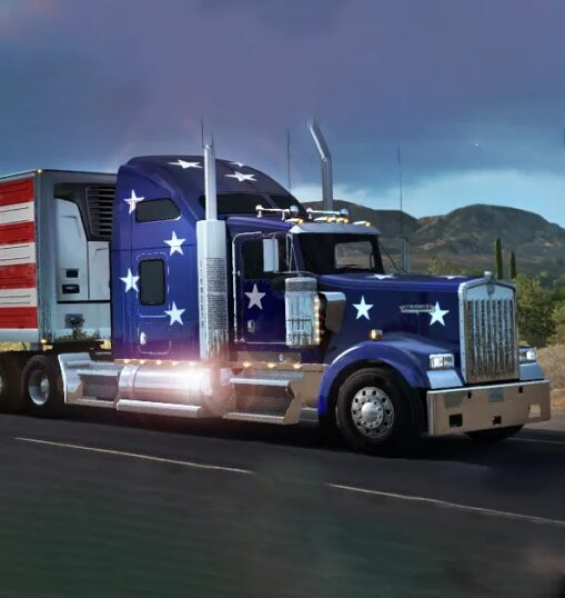
We Put Truckers First Because Others Don't
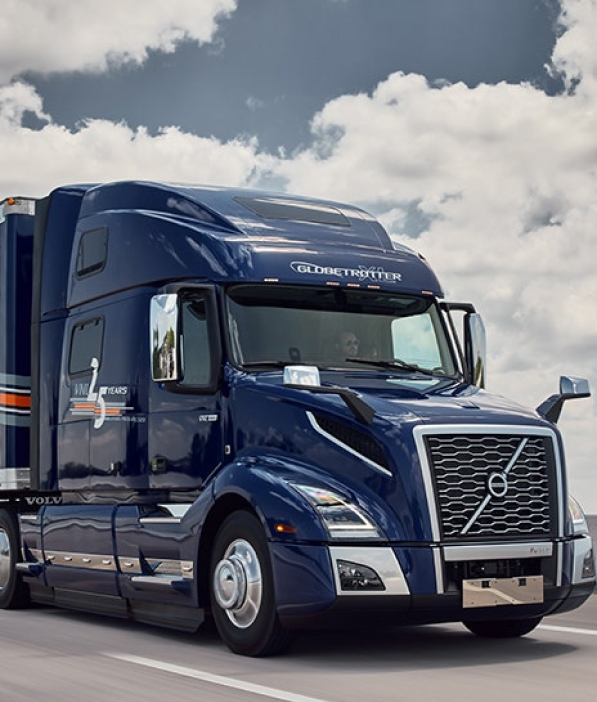
Truckers across the country choose to work with Independence Insurance Agency because we put their needs first before anything else. As experts in transportation insurance, we proudly offer a range of quality insurance products that are both practical and affordable for them. Our industry-leading carriers provide coverage that caters to the unique challenges faced by the trucking industry, ensuring that your business is protected at all times.
At our core, we are committed to finding the best possible price for your coverage without compromising the quality of service you deserve. The truth is, we understand how essential truckers are to the United States and take pride in making their insurance experience more streamlined and affordable.
One way we do so is by simplifying the insurance process. Our transportation specialists take the time to understand your specific needs and budget to tailor a comprehensive plan that works for you. You won't ever have to worry about cookie-cutter plans or uninterested agents when you work with our commercial trucking insurance agency. We take an educational approach to ensure that the entire big rig insurance process is quick, painless, and easy to understand. If there's something you don't understand, we're happy to take the time to explain. After all, the success and safety of your business are on the line.
Looking to the future, we are committed to providing innovative new products that cater to the ever-changing needs of truck drivers. As your one-stop shop for commercial trucking insurance, we are dedicated to your success, one policy at a time.
If you're a commercial trucker looking to ensure your rig, you can rest easy knowing that Independence Insurance Agency provides:
- Affordable Trucking Insurance Plans for Any Budget
- Exemplary Customer Service
- Seasoned Transportation Specialists Who Customize Plans to Your Needs
- A+ Carriers Across the Country
- Simple, Easy Quote and Bind Process
- Multiple Insurance Carriers Quoted to Find You the Best Rates
- Truck Insurance for New Ventures
Call us or send us a message today to learn more about the best 18-wheeler insurance options for your trucking business.
 The Commercial Truck
The Commercial Truck
Common Types of Big Rig Truck Insurance in Union, SC
At Independence Insurance Agency, we offer several types of insurance coverage for local, intermediate, and long-haul trucking needs. Here are just a few categories of trucking insurance coverage that our agency offers.
As the foundation of your insurance policy, liability coverage is required by law in most states in the U.S. It provides coverage for damage or injuries caused to properties or other people if your 18-wheeler is responsible for the crash. Without liability coverage, it's almost impossible to drive a truck or run a trucking business without major legal consequences.
Having physical damage coverage is an essential component that shouldn't be overlooked. This insurance is responsible for covering the expenses related to repairing or replacing your truck in situations such as accidents, theft, vandalism, and other damaging events. By having this coverage, you can rest assured that your business won't be affected significantly by unexpected incidents, and you can continue running your operations smoothly even in challenging times.
For trucking companies, the goods they transport are crucial to their operations. To protect these goods from damage, loss, or theft while in transit, cargo insurance is essential. This coverage provides much-needed peace of mind for both you and your clients, allowing you to reimburse clients for any losses sustained while protecting your reputation and brand identity.
Non-Trucking Liability Insurance is designed to cover property damage or bodily injury that may occur during personal time when the driver/truck is not under dispatch. This coverage can be applied with or without a trailer and is added to a commercial policy as an endorsement.
While Independence Insurance Agency has built a reputation of excellence in serving the needs of truckers, we also offer general liability. Also known as Truckers General Liability, this coverage insures for bodily injuries or property damage that happen due to business activities that are NOT the cause of operating a truck. It covers accidents that occur in parking lots, rest stops, also while loading or unloading. General liability can also cover losses related to theft and vandalism. Most brokers and shippers will require this coverage to work with you.
Bobtail insurance is a type of coverage that is comparable to non-trucking liability, which is designed to offer protection when driving a truck without a trailer attached. This is commonly referred to as "bobtailing." With bobtail insurance, the tractor is covered at all times, even when it is not attached to a trailer, regardless of whether or not the truck is under dispatch.
Trailer interchange insurance is a must-have if you're involved in a trailer interchange agreement. This essential coverage offers protection for trailers owned by other parties that you're using under a contractual agreement. It covers damages caused by collisions, fire, theft, and vandalism, providing assurance to all parties involved.
Curious whether our commercial truck insurance agency in cityname, state offers additional coverage? The following options can be bound in your insurance policy:
- Business Interruption Insurance
- Reefer Breakdown Insurance
- Occupational Accident with Contract Liability Insurance
- Rental Reimbursement Insurance
- Underinsured or Uninsured Motorist Insurance
- Towing Insurance
- Electronics Insurance
- Much More
 3 Safe Driving Tips to
3 Safe Driving Tips to
Lower the Cost of Truck Insurance in Union, SC
Keeping your drivers safe on the road is crucial not only for their own well-being but also for the safety of other motorists and the financial stability of your business. The Department of Labor has identified the trucking industry as one of the most hazardous sectors in the U.S. In fact, trucking and logistics fleets are known for their high injury and fatality rates. By improving how safely your truckers drive, you can help reduce expenses related to claim payouts, accidents, and insurance premium hikes.
Whether you own a large fleet or you're the owner and operator of a single rig, keep these safe driving tips in mind to help lower your insurance costs.
Implement Preventative Maintenance Plans
Ensuring the safety of your drivers begins with the safety of their vehicles. Trucks and tractor-trailers that do not receive regular maintenance, such as oil and brake pad changes, are more likely to experience breakdowns while on the road. Telematics devices provide real-time insight into engine and odometer data, including fault codes.
This information enables your mechanics to create comprehensive preventative maintenance schedules based on mileage, history of previous breakdowns, days, and more. Additionally, they can receive immediate notifications for critical fault codes. By implementing routine maintenance and proactive repair schedules, you can ensure that your vehicles are in top condition, minimizing the likelihood of breakdowns, which can help reduce the cost of trucker insurance.
 Call Now
Call Now

Practice Defensive Driving
This approach aims to mitigate the risk of fatal crashes and injuries by proactively identifying and responding to potentially dangerous situations and making informed decisions while driving. By adopting defensive driving techniques, drivers can reduce their likelihood of accidents, thereby minimizing the need for expensive repairs, claim payouts, and increased insurance premiums.
Some of the easiest ways for you or your drivers to practice safe driving include:
- Be Wary of Blind Spots: Operating a reefer or tractor-trailer means driving high off of the ground, which can make visibility limited, especially in blind spots. To check your blind spot, look over your shoulder and out of your windows while changing lanes.
- Be Ready for Emergencies on the Road: It's important for drivers to be ready for unexpected situations when driving, especially during long trips. They should be equipped to handle emergencies such as poor driving conditions or big rig breakdowns.
- Use the Three-Second Rule: Truck drivers should try to maintain a three-second gap between their vehicle and the car in front of them. This means that the truck driver should reach a certain point on the road three seconds after the car in front of them has passed that same point.
- Always Use Right and Left Turn Indicators: It's important for drivers to always use their turn signals when changing lanes or exiting highways, even if they don't see any other cars around. This is not only required by law, but it also reduces the chances of accidents occurring on the road.
 Call Now
Call Now
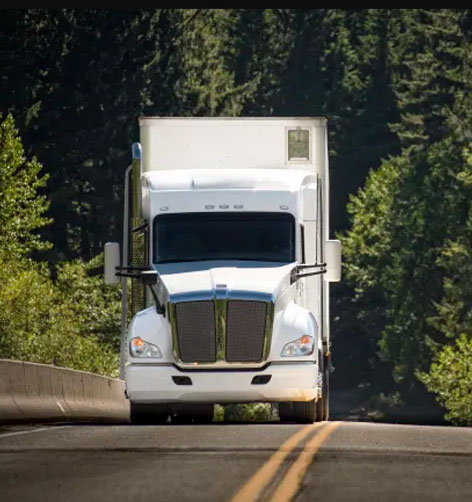
Find Ways to Prevent Distracted Driving
According to the Federal Motor Carrier Safety Administration (FMCSA), distracted driving is the primary reason behind truck driver accidents. Any activity that takes a driver's attention away from the road or the steering wheel is considered distracted driving. Distractions can come in various forms, such as eating while driving or gazing at a billboard outside the window. However, the most frequent form of distracted driving is the use of cellphones, specifically texting while driving.
Assuming you or your driver's rigs are equipped with dual-facing cameras, try reviewing footage of an unsafe driving incident. Coach your drivers on ways to correct their unsafe behaviors or look up ways to do so yourself if you're the one operating the big rig. The bottom line is that when your drivers aren't distracted, they drive safer. And when they drive safer, the cost of 18-wheeler insurance in cityname, state can be reduced.
 Call Now
Call Now

Ensuring the safety of your drivers begins with the safety of their vehicles. Trucks and tractor-trailers that do not receive regular maintenance, such as oil and brake pad changes, are more likely to experience breakdowns while on the road. Telematics devices provide real-time insight into engine and odometer data, including fault codes.
This information enables your mechanics to create comprehensive preventative maintenance schedules based on mileage, history of previous breakdowns, days, and more. Additionally, they can receive immediate notifications for critical fault codes. By implementing routine maintenance and proactive repair schedules, you can ensure that your vehicles are in top condition, minimizing the likelihood of breakdowns, which can help reduce the cost of trucker insurance.

 Call Now
Call Now
This approach aims to mitigate the risk of fatal crashes and injuries by proactively identifying and responding to potentially dangerous situations and making informed decisions while driving. By adopting defensive driving techniques, drivers can reduce their likelihood of accidents, thereby minimizing the need for expensive repairs, claim payouts, and increased insurance premiums.
Some of the easiest ways for you or your drivers to practice safe driving include:
- Be Wary of Blind Spots: Operating a reefer or tractor-trailer means driving high off of the ground, which can make visibility limited, especially in blind spots. To check your blind spot, look over your shoulder and out of your windows while changing lanes.
- Be Ready for Emergencies on the Road: It's important for drivers to be ready for unexpected situations when driving, especially during long trips. They should be equipped to handle emergencies such as poor driving conditions or big rig breakdowns.
- Use the Three-Second Rule: Truck drivers should try to maintain a three-second gap between their vehicle and the car in front of them. This means that the truck driver should reach a certain point on the road three seconds after the car in front of them has passed that same point.
- Always Use Right and Left Turn Indicators: It's important for drivers to always use their turn signals when changing lanes or exiting highways, even if they don't see any other cars around. This is not only required by law, but it also reduces the chances of accidents occurring on the road.
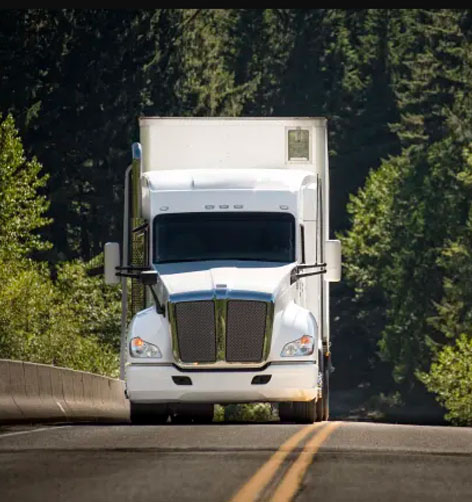
 Call Now
Call Now
According to the Federal Motor Carrier Safety Administration (FMCSA), distracted driving is the primary reason behind truck driver accidents. Any activity that takes a driver's attention away from the road or the steering wheel is considered distracted driving. Distractions can come in various forms, such as eating while driving or gazing at a billboard outside the window. However, the most frequent form of distracted driving is the use of cellphones, specifically texting while driving.
Assuming you or your driver's rigs are equipped with dual-facing cameras, try reviewing footage of an unsafe driving incident. Coach your drivers on ways to correct their unsafe behaviors or look up ways to do so yourself if you're the one operating the big rig. The bottom line is that when your drivers aren't distracted, they drive safer. And when they drive safer, the cost of 18-wheeler insurance in cityname, state can be reduced.

 Call Now
Call Now
 FAQs About
FAQs About
Independence Insurance Agency
If you're looking for a commercial trucking insurance agency for your business, chances are you have some questions - and we've got answers. Keep reading to learn more about some of the most commonly asked questions we hear from truckers like you.
Why go with a "jack of all trades" when you can work with specialists who focus exclusively on transportation insurance? We have excellent relationships with major trucking insurance carriers and, as such, can provide the best assistance and reasonable rates.
Typically, companies will look at claims that date back three years or less.
We proudly work with more than 20 carriers to provide our clients with the most advantageous options at competitive prices, catering to the needs of owner-operators and big fleets alike.
Permit filings are typically done by insurance companies on the next business day. Federal (FMCSA) filings are completed online and updated immediately, while some states may take up to three weeks to process.
Independence Insurance Agency: Committed to the Trucking Industry
There's no question about it - you've got to protect your staff, your rig, and your trucking business with insurance. But choosing the right insurance partner isn't always easy. Thankfully, with Independence Insurance Agency by your side, you can rest easy knowing you're covered no matter where the road takes you. If you're in need of a commercial truck insurance agency in Union, SC that caters to truckers like you, pick up the phone and contact one of our transportation specialists today. That way, you can get back on the road with confidence tomorrow.
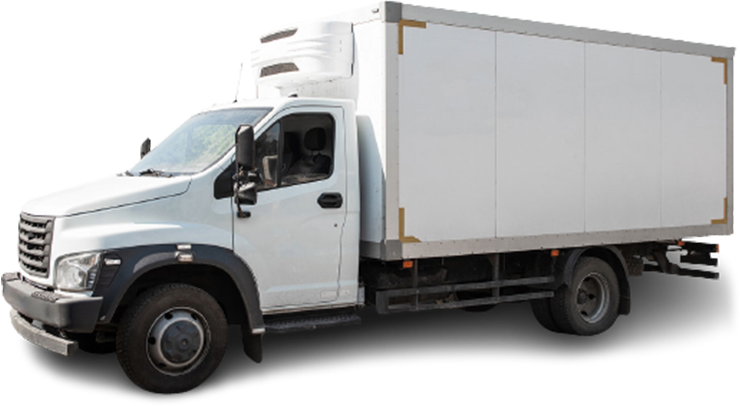
Latest News in Union, SC
Biotech Company MycoWorks Begins Production at the World's First Commercial-Scale Fine Mycelium™ Plant in Union, South Carolina
MycoWorkshttps://www.prnewswire.com/news-releases/biotech-company-mycoworks-begins-production-at-the-worlds-first-commercial-scale-fine-mycelium-plant-in-union-south-carolina-301933216.html
Providing the company's luxury leather alternative Reishi™UNION, S.C., Sept. 20, 2023 /PRNewswire/ -- Today, biotechnology company MycoWorks begins production at its world-class manufacturing facility in Union, S.C. Now capable of scaling-up to meet luxury industry demand, the company is set to grow millions of square feet of its leather-alternative material produced with the company's proprietary technology, Fine Mycelium™. This patented technology produces Reishi™, a biomaterial with unparalleled hand...
Providing the company's luxury leather alternative Reishi™
UNION, S.C., Sept. 20, 2023 /PRNewswire/ -- Today, biotechnology company MycoWorks begins production at its world-class manufacturing facility in Union, S.C. Now capable of scaling-up to meet luxury industry demand, the company is set to grow millions of square feet of its leather-alternative material produced with the company's proprietary technology, Fine Mycelium™. This patented technology produces Reishi™, a biomaterial with unparalleled hand-feel, strength and durability – on par with calfskin leather, the industry gold standard.
With partners including Hermès and General Motors, MycoWorks' progression into commercial-scale manufacturing is a sign of maturation for the biomaterials industry that the company continues its leadership in materials science. Per MycoWorks' market sizing, there are serious challenges facing the $164 billion leather market and $28 billion luxury leather market such as supply chain constraints and inferior product alternatives. Since 2010, demand for luxury leather increased 251 percent, while high-end hide production declined by 22 percent due to falling beef and dairy consumption. MycoWorks, and its hallmark material Reishi™, are answering these challenges with the world's first full-scale alternative leather factory, a revolution in the production of high-quality natural materials for the luxury industry.
The opening of the 136,000 sq. ft. factory also marks the world's largest mycelium material operation, a major step for the use of mycelium– the "root structure" of mushrooms. Starting first with leather, MycoWorks' Fine Mycelium™ technology can later be expanded into other applications. The plant was made possible through a $125 million Series C funding round in 2021 from Prime Movers Lab, SK Networks, Mirabaud Lifestyle Impact & Innovation Fund, DCVC Bio, Novo Holdings and several strategic customers and investors. With construction beginning in 2022, the project was delivered on-time and on-budget, running the same tray-based mycelium growth system successfully piloted in its California plant yet scaled to 100x the volume.
"As MycoWorks continues to lead in biomaterial innovation, we are thrilled to open this first-of-its-kind facility in South Carolina. This reality is thanks to our team of experienced manufacturing leaders and engineers from the consumer goods, automotive, food, pharmaceutical, and biotechnology industries who have adapted robotic equipment and systems to handle our unique tray-based biomaterials process. In turn, they have enabled the first high-quality mycelium material product at scale, a feat which has never been accomplished until now," says Doug Hardesty, MycoWorks Chief Operating Officer. "We thank the city and citizens of Union for welcoming MycoWorks into its community."
MycoWorks' facility uses state of the art robotics, digital analytics, and AI resources to achieve high-caliber quality and supply chain systems for the company's customers in an entirely new manufacturing process. Using automated guided robots (AGRs), the company has automated 80% of its process, enabling MycoWorks' to reduce handling costs but maintain expert interactions where they are critical for quality assurance, achieving both high quality and low-cost production.
For the leather industry, MycoWorks' Union, S.C., facility is a breakthrough in supply chain management, providing full predictability, transparency, and provenance of high-quality natural materials while also reducing waste. Grown-to-spec, Fine Mycelium™ can be customized for thickness, weight and mechanical properties, allowing for an unprecedented level of control of a natural material, previously impossible via traditional agriculture.
Luxury fashion and automotive brands have eagerly awaited this opening to move collection design from prototyping and capsules to full-scale adoption. To date, Fine Mycelium™ has already been applied with great success to product categories from luxury handbags and footwear to vehicle interiors and home furnishings.
For Union, S.C.—population 30,000— MycoWorks' investment is reshoring production from an industry that primarily sources from Europe. Union has had a long history in textile manufacturing, and as the region is already home to leading automotive manufacturers, Fine Mycelium™ will allow other industries in the area and globally to closely collaborate on development. This centralization of biotechnology and manufacturing has long been a goal of South Carolina Governor Henry McMaster, a dedicated supporter of bringing cutting-edge science and technology to the state.
"We are thrilled to welcome MycoWorks to Union and have been eagerly awaiting the start of production," said Governor Henry McMaster. "We are already seeing the growth that this opening is bringing to the immediate and greater communities in the area, including more jobs, housing, storefronts, and overall investments. MycoWorks is a fantastic addition to our portfolio of energy-efficient plants, and we look forward to their long-term impact in South Carolina."
To learn more about employment opportunities at MycoWorks, visit https://www.mycoworks.com/careers
For media inquiries, please contact mycoworks@bpcm.com
About MycoWorksIn 2013, co-founders Philip Ross and Sophia Wang formed MycoWorks, a San Francisco-based biomaterials company dedicated to bringing new mycelium-grown materials to the world. MycoWorks' patented Fine Mycelium™ technology, an advanced manufacturing platform and breakthrough in materials science, engineers mycelium during growth to form proprietary, interlocking cellular structures for unparalleled beauty, handfeel, strength and durability. The company's flagship material- Reishi™ - is a new category of material for the world's best luxury brands. For more information, please visit mycoworks.com and madewithreishi.com.
SOURCE MycoWorks
New Union, South Carolina, plant makes leather from mushrooms, brings 400 jobs
Janice Limonhttps://www.wyff4.com/article/south-carolina-plant-makes-leather-mushrooms-jobs/45628042
UNION, S.C. —South Carolina Gov. Henry McMaster helped celebrate a new Upstate business that's bringing jobs to the state while creating leather out of mushrooms.McMaster cut the ribbon on the new MycoWorks Vidar facility, at 260 Midway Drive, in Union.The facility broke ground in January 2022, and promised to bring 4...
UNION, S.C. —
South Carolina Gov. Henry McMaster helped celebrate a new Upstate business that's bringing jobs to the state while creating leather out of mushrooms.
McMaster cut the ribbon on the new MycoWorks Vidar facility, at 260 Midway Drive, in Union.
The facility broke ground in January 2022, and promised to bring 400 jobs to the area, as well as a 136,000 sq. ft. factory.
Now that it's complete and up and running, the plant is the world's largest facility of its kind, set to grow millions of square feet of mycelium, a leather-alternative material made out of mushrooms.
"I got a feeling something new is about ready to happen," McMaster said of the high-tech facility during the dedication.
The material is produced with the company’s proprietary technology, which is trademarked as Fine Mycelium.
"There is no other biotech facility like this in the world," CEO Matt Scullin said. "It's an incredible process based on a very simple idea: put mycelium on wood, and it will grow."
Recommended
What does all this rain we've had in SC mean for our drought status
The patented technology produces "Reishi," a trademarked biomaterial that the company says has the same feel, strength and durability as calfskin leather, the industry gold standard.
MycoWorks says its Union plant uses state-of-the-art robotics, digital analytics, and AI resources to achieve high-caliber quality and supply chain systems for the company’s customers in an entirely new manufacturing process.
MycoWorks says the material will help solve the serious challenges facing the $164 billion leather market and $28 billion luxury leather market, such as supply chain constraints and inferior product alternatives.
According to MycoWorks, Since 2010, demand for luxury leather increased 251 percent, while high-end hide production declined by 22 percent due to falling beef and dairy consumption.
It says the Union plant is the world’s first full-scale alternative leather factory.
to apply for a job with MycoWorks, click here.
Commentary: Don’t let union Grinches steal SC’s bright future
Sara Hazzardhttps://www.postandcourier.com/opinion/commentary/unions-not-needed-in-sc-trying-to-steal-bright-future/article_00b2ece6-99e5-11ee-8abd-3fe5814ba276.html
As we enter the holidays, we remember the story of “How the Grinch Stole Christmas.” Just as the Grinch didn’t like seeing people enjoy Christmas, unions don’t like seeing a low union participation state like South Carolina enjoy economic success.South Carolina has become a manufacturing powerhouse.Despite being so small geographically, the Palmetto State is home to more than 6,000 manufacturing facilities employing more than 300,000 South Carolinians and generating a $200 billion annual economic impact....
As we enter the holidays, we remember the story of “How the Grinch Stole Christmas.” Just as the Grinch didn’t like seeing people enjoy Christmas, unions don’t like seeing a low union participation state like South Carolina enjoy economic success.
South Carolina has become a manufacturing powerhouse.
Despite being so small geographically, the Palmetto State is home to more than 6,000 manufacturing facilities employing more than 300,000 South Carolinians and generating a $200 billion annual economic impact. Our manufacturing community provides good-paying jobs and produces a diverse catalog of world-class products such as cars, planes, tires, household goods and advanced materials. But what makes South Carolina’s manufacturing industry truly impactful and special is its people.
South Carolina’s manufacturing workers take great pride in what they do, what they accomplish and how their work makes communities stronger. That spirit is what built our vibrant economy and helped solidify South Carolina’s global reputation as a business-friendly state with hard-working, highly skilled people — all of which have enabled us to attract significant investments and new jobs.
This success is also a testament to our state’s right-to-work law and the principles it provides for individual freedom and prosperity. In a landscape where businesses thrive, job opportunities abound and workers enjoy the ability to choose their professional path without union involvement, the question arises: Are unions needed in South Carolina? The answer is no.
So, it makes you wonder why labor unions such as the United Auto Workers are publicly targeting manufacturers and their associates in the South. The answer is simple — it’s part of a strategy to increase dues and membership for the labor union. It’s an attempt to establish relevancy within a region of the nation that recognizes that unions are not needed in the workplace.
In South Carolina, we have seen how union involvement plays out: Their promises fall flat, and their impact on a community can have distressing and long-lasting consequences.
When Mack Trucks announced in 1986 that it would build an assembly plant in Fairfield County, the news was met with tremendous excitement, promising to lift an area in need of economic growth. But when unions began infiltrating the plant just a few years later, against the wishes of community members who warned about the risks unions would bring, it cast a shadow over not only that one operation but the entire region. By 2002, the Mack Trucks plant closed based on business conditions and overcapacity, and Fairfield County lost the hundreds of good-paying jobs that went along with it. Clearly, union representation did not guarantee long-term success or change.
We cannot let history repeat itself.
South Carolina has one of the lowest union participation rates in the country, which has generated jobs and prosperity that we have come to know and enjoy. Unions put S.C. jobs, and thus families, at risk.
Our state’s manufacturing community has done well in creating economic prosperity, empowering its workforce to thrive and innovate in highly technical environments, and supporting communities and philanthropic programs through good corporate citizenship without any union involvement.
Unions were not needed for South Carolina’s manufacturing sector to achieve the success it sees today and are definitely not needed for our state’s future economic success.
Sara Hazzard is the president and CEO of the South Carolina Manufacturers Alliance.
Get a weekly recap of South Carolina opinion and analysis from The Post and Courier in your inbox on Monday evenings.
State lawmakers, organizations ask U.S. Supreme Court to overturn union port win
Steven Ardaryhttps://www.live5news.com/2023/10/31/state-lawmakers-organizations-ask-us-supreme-court-overturn-union-port-win/
CHARLESTON, S.C. (WCSC) - As the U.S. Supreme Court decides if it will hear arguments in the ongoing dispute over 270 South Carolina port jobs and a $1.5 million port, several lawmakers and organizations are weighing in and urging the court to take up the case.The National Right to Work Legal Defense Foundation on Friday filed an amicus brief in support of overturning the ruling from the Fo...
CHARLESTON, S.C. (WCSC) - As the U.S. Supreme Court decides if it will hear arguments in the ongoing dispute over 270 South Carolina port jobs and a $1.5 million port, several lawmakers and organizations are weighing in and urging the court to take up the case.
The National Right to Work Legal Defense Foundation on Friday filed an amicus brief in support of overturning the ruling from the Fourth Circuit Court of Appeals that sided with the International Longshoreman’s Association allowing them to fill every role at the $1.5 billion facility.
South Carolina has long run on a hybrid model that allows state employees to operate the cranes at state port facilities while other jobs are filled by union workers.
The NRWF in the brief argues that handing the crane jobs to the union would have continued consequences beyond the initial job loss of the state employees and violates secondary boycott rules.
They argue that even if the state employees were to join a contractor with a union contract those employees would be passed over in favor of union members with longer seniority.
The labor dispute began when the ILA sued the United States Maritime Alliance for sending shipping lines to Hugh K. Leatherman Terminal shortly after the completion of its first phase two years ago. The union alleged the move violated the terms of a master contract prohibiting the use of newly constructed terminals where ILA dockworkers do not perform all unloading tasks.
For years, the ILA union held master contracts with major shipping companies along the coast and those contracts are updated over time. The most recent contract states that at any newly-opened port, unless all the jobs from the ship to the gate are performed by union members, the shipping companies will not use the new port. That’s what’s been happening at the Hugh Leatherman terminal since it opened.
Shipping line containers subsequently called off. The South Carolina State Ports Authority viewed the move as an illegal strong-arm tactic to grab new lines of work and argued a solely unionized staff would increase operational costs. The state favored a narrow definition of the jobs entitled to ILA members that excluded “lift-equipment jobs” like cranes operation.
However, the U.S. Court of Appeals for the 4th Circuit endorsed a broader definition. Two of the three judges affirmed the National Labor Relations Board’s conclusion that “work” involved “the loading and unloading generally at East and Gulf Coast ports.”
The South Carolina Ports Association has called the practice a violation of secondary boycott laws. Because of the threat of lawsuits from the ILA, U.S. Maritime Association carriers will not use Leatherman.
“In their effort to maintain and expand their stranglehold on port employment all across the East Coast, ILA union bosses are putting the livelihoods of hundreds of Leatherman employees in jeopardy – employees who work side-by-side with unionized workers at Leatherman and have done nothing wrong,” National Right to Work Foundation President Mark Mix said. “The Supreme Court must reverse the Biden NLRB’s erroneous ruling letting this union gambit move forward, bearing in mind that the real victims here are the nonunion port workers whose jobs ILA officials want to seize.”
The nonprofit isn’t the only one to fill a brief in support of overturning the ruling.
Gov. Henry McMaster and Georgia Gov. Brian Kemp filed a brief in support of the SCSPA arguing the appellate court’s decision expanded the scope of the work-preservation doctrine beyond what was allowed under the National Labor Relations Act.
“The Leatherman Terminal is a state-of-the-art facility and a critical part of South Carolina’s economic-development portfolio and continued competitive advantage,” McMaster said. “I will not stand idly by and allow unions and their unlawful boycotts to hold our State’s resources, jobs, and supply chain hostage as out-of-state labor bosses seek to advance their own interests at the expense of state employees. South Carolinians have worked hard to earn our prosperity, and we must continue to preserve it and enhance it, not bargain it away under threats of labor union boycotts and coercive pressure campaigns. Particularly at a time when the Southeast is leading the nation in both population and job growth, I appreciate Governor Kemp joining me in this fight to maintain and advance our States’ shared interests in protecting our ports and enhancing our regional supply chain.”
“The Fourth Circuit’s decision creates a roadmap for unions to erode the equal dignity and sovereignty of the States,” the governors argue.
Ultimately, the decision will also impact Georgia’s Port of Savannah and North Carolina’s Port of Wilmington which both operate under hybrid models.
“The success of the Georgia Ports Authority speaks for itself, with the ports supporting hundreds of thousands of Georgia jobs and billions of dollars in revenues statewide,” Brian Kemp said. “To continue that momentum, it’s essential the port retains the authority to decide the appropriate operating model that secures long-term performance and benefits the consumer. By taking this action alongside our partners in South Carolina, we aim to support the future prosperity of our ports and the role of GPA in shaping that future.”
The brief argues that the Fourth Circuit’s decision undermines the pro-competitive principles that the NLRA was designed to protect and that the decision has allowed unions to use their power to harm businesses that are not unionized.
That argument was reiterated by South Carolina’s senators, Lindsey Graham and Tim Scott who also filed an amicus brief asking the court to take up the case.
“There is no doubting this case’s importance,” Graham and Scott said. “It is important for the people of South Carolina. It is important to ensure consistent application of the law nationwide. And it is important to vindicate the federal constitutional structure, so that the People remain governed by a nation of laws, rather than ruled by administrative fiat.”
The South Carolina Manufacturers Alliance said port choice is a decision that’s made based on the contents of a container, shipping routes, access to inland shipping and final destination.
“The Fourth Circuit’s coastwide view of the work caused it to treat containers of cargo as fungible, without regard to the contents of the particular containers,” the alliance said.
The U.S. Chamber of Commerce, South Carolina Chamber of Commerce and the National Association of Manufacturers said the court’s decision “blurs the critical line between work preservation and acquisition.”
“The result of this conflation will be to dramatically increase the range of circumstances when unions are allowed to engage in pressure campaigns—wielding them not as a shield to preserve their own jobs, but as a sword to take away the jobs of non-union employees,” court documents state.
The groups argue the “consequences for the law and the national economy would be dire” should the court uphold the Fourth Circuit’s decision.
They argue that the Fourth Circuit misapplied the precedents used when they ruled in favor of the union.
A response from the government’s original deadline has since been extended to Nov. 29.
Copyright 2023 WCSC. All rights reserved.
Union County e-commerce center to shutter
Molly Hulseyhttps://gsabusiness.com/union-county-e-commerce-center-to-shutter/
Once an expanding boon for the Union County economy, the Belk Fulfillment Center in Jonesville is on a fast track toward closure.According to an S.C. Works WARN notification report, the e-commerce hub is projected to close on April 30 this year, sparking the layoff of 310 employees.The North Carolina-based department store also has retail loc...
Once an expanding boon for the Union County economy, the Belk Fulfillment Center in Jonesville is on a fast track toward closure.
According to an S.C. Works WARN notification report, the e-commerce hub is projected to close on April 30 this year, sparking the layoff of 310 employees.
The North Carolina-based department store also has retail locations in Easley, Greenville’s Haywood Mall, Simpsonville, Greer, Anderson, Seneca, Gaffney, Greenwood, Spartanburg and Laurens. After the closure of the Jonesville site, the last remaining distribution center in the state will be in Blythewood, near Columbia.
The decision follows the completion of Belks’ financial restructuring last February, which reduces its debt by $450 million and boosted new capital sources by $225 million, according to the company, which is owned by New York private equity firm Sycamore Partners.
The restructuring plan also extended maturities on all company loans to July 2025 as the company aimed to transition from a traditional department store into “full omni retailer” with a growing e-commerce presence.
"As part of an effort to further align our supply chain network with the needs of the company, the Belk fulfillment center in Jonesville, SC will be closing in the coming months," Belk spokesperson Jessica Rohlik told GSA Business Report in an email. "The decision was made after careful review of internal processes. We know the closure will affect associates at the Jonesville fulfillment center, and we are committed to working with them in the coming weeks to provide resources during the transition."
Belk first announced plans in 2012 to invest $4.5 million in Union’s 500,000-square-foot former Disney facility to launch a distribution and fulfillment center as an extension of the company’s existing Pineville, N.C., logistics operations. After a $9 million upfitting, the company said it would invest an additional $32 million by 2015 after the “rapid growth” of online sales.
In 2014, the company said it would invest a collective $47 million in the facility to grow its footprint by 50% at 345,000 square feet by 2015.
“Belk’s e-commerce business continues to grow, and with it the demand for increased distribution and fulfillment operations, John R. Belk, former president and COO of Belk said in the 2014 announcement. “Our Jonesville facility has been a key factor in our belk.com growth, and we are pleased to be able to invest additional resources in and to bring additional jobs to Union County.”
Disclaimer:

